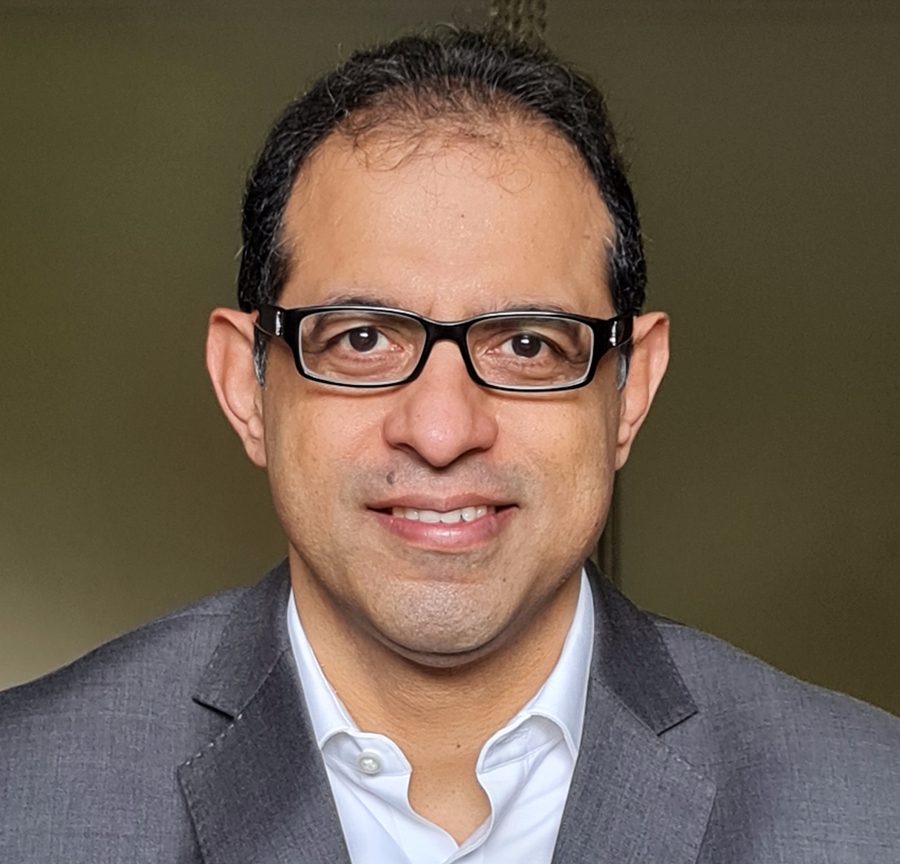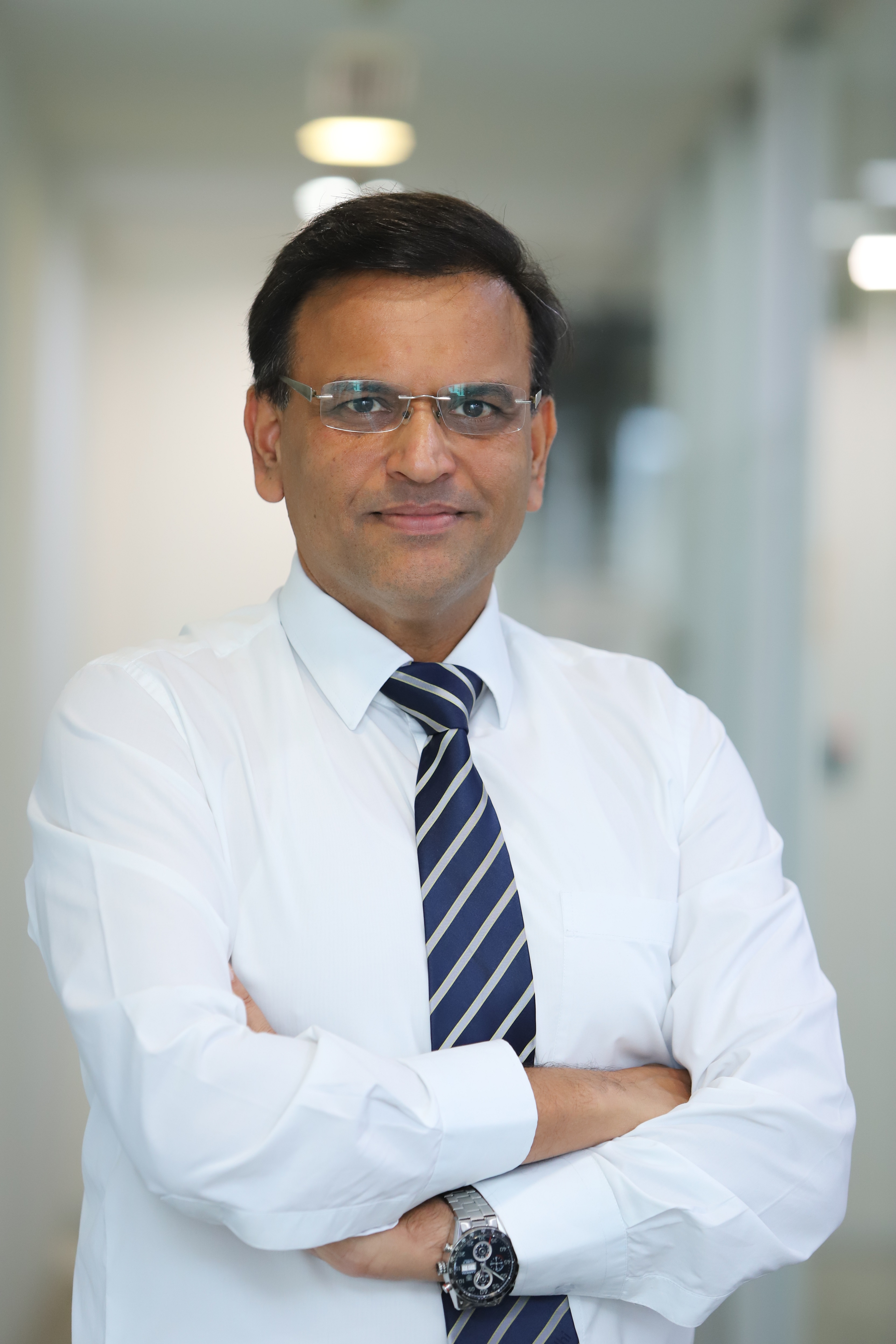India's telecom sector has emerged as a key driver of economic growth and development, contributing 6.5% to the nation's GDP


Subbarao Boddu, Professor, Mahindra University

Anku Jain, Managing Director at MediaTek India

Agendra Kumar, MD,,Esri India

Deshbandhu Bansal, COO, Messaging Solutions, Comviva
FinTech BizNews Service
Mumbai, May 16, 2024: World Telecommunication and Information Society Day, is celebrated on 17th May 24. World Telecommunication and Information Society Day (WTISD) 2024 brings about a change to connect everyone and unlock sustainable prosperity through digital innovation. Helping tackle the world’s most pressing challenges, from fighting climate change to eliminating hunger and poverty, it is expected to achieve 70% of targets under the UN Sustainable Development Goals by 2030.
Sharing thoughts from Industry leaders on the same.
MediaTek:
Anku Jain, Managing Director, MediaTek India
"India's telecom sector has emerged as a key driver of economic growth and development, contributing 6.5% to the nation's GDP. India has demonstrated a strong focus on innovation, possibilities, and inclusive growth in its telecom journey from, 5G adoption to technological breakthroughs. The 5G spectrum was successfully auctioned off by India, creating the foundation for next-generation connectivity while providing numerous opportunities for businesses and consumers. With the introduction of 5G services—which are among the fastest in the world—a new age of high-speed, low-latency communication has arrived. MediaTek foresees that new-age technologies such as 5G Fixed Wireless Access (FWA), Internet of Things (IoT), Artificial Intelligence (both Generative AI and Cloud AI), AR/VR, advancements in 5G, 6G, and edge computing will drive the next wave of technological advancements.
Furthermore, The National Digital Communications Policy of 2018, the PLI scheme, the Bharatnet project, and other government programs/ initiatives have contributed significantly to the growth of domestic manufacturing, the expansion of digital infrastructure, and the closing of the digital gap between urban and rural areas. The commitment to empowerment and connectivity ensures the democratization of technology, even in the most remote corners of the nation."
Esri India:
Agendra Kumar, Managing Director, Esri India
“For India to be among the top three economies of the world, broadband penetration needs to increase from about 13% to 80%. This requires connecting over 20 crore households with broadband services, which sets the ground for large-scale deployment of fibre, mobile towers, etc. GIS will be a crucial technology here, enabling stakeholders to achieve unmatched precision and cost and time efficiency in the projects. Using GIS-powered digital twins, broadband planning, execution, and network management will be more efficient and cost-effective. GIS will make broadband deployment a much easier task due to a lot of data that is now available for rural areas. Digital twins can also facilitate signal propagation modeling, guiding maintenance, and upgrades for stronger coverage. Expansion in broadband infrastructure, coupled with accompanying amenities like digital literacy programs, online educational resources, job search platforms, and healthcare facilities, will lead to diminished inequalities and greater development. We, at Esri India are continuously working with government agencies, not-for-profit organizations, and authoritative data producers to advance various sustainable development efforts in the country. Our contributions to the broadband growth story would be another step towards building a more resilient nation.”
Nokia:
Tarun Chhabra, Country Manager, Nokia India
“World Telecommunication & Information Society Day is celebrated every year to mark the incredible contribution of telecom in building digital networks and economy, however, as the digital landscape is growingly becoming all-pervasive, now the telecom industry needs to validate its sustainability efforts. It's estimated that digital technologies can help achieve 70% of targets under the UN Sustainable Development Goals by 2030. On our part, Nokia globally has committed to reaching net zero greenhouse gas emissions by 2040. We are actively participating in many standardization forums to develop standards for energy-efficient telecommunications networks. circular telecommunications products, responsible use of AI, etc. On the manufacturing front, our Chennai factory in India fulfils 80% of its energy requirement with green energy and aims to achieve 100% green energy use by 2025. With the fastest rollout of 5G, India is on the cusp of a digital revolution with its pioneering initiatives in the adoption of AI and also taking the right steps in establishing its 6G leadership. Nokia remains committed to working with all its stakeholders as India readies to steer global digital innovation and leadership.”
Mahindra University:
Dr. Subbarao Boddu, Professor, Mahindra University
“In the realm of sustainable development, digital innovation takes center stage, with telecommunications playing a pivotal role. The introduction of 5G technology marks a transformative era in India's education sector, ushering in unparalleled advancements in connectivity and learning. Leveraging 5G's high-speed, low-latency networks, online education becomes seamless, bridging geographical divides between urban and rural areas. Collaborative efforts between academia, telecommunications firms, and research institutions are fostering the growth of private 5G campus networks, enriching educational infrastructure and accessibility. Moreover, 5G-enabled remote and virtual labs revolutionize traditional learning environments, offering students immersive experiences virtually. These advancements enhance educational content also promote environmental sustainability by reducing reliance on physical resources and travel. At Mahindra University, our Wireless Innovation and 5G Lab is dedicated to crafting technical solutions for private 5G networks, empowering students with real-time experiences and limitless exploration. As we continue to integrate digital technologies into education, the symbiotic relationship between academia and the telecommunications industry becomes imperative in propelling sustainable development and equipping future generations for a globally connected world.”
Comviva:
Deshbandhu Bansal, Chief Operating Officer - Messaging Solutions, Comviva
“With India making significant strides in the telecom sector over the decade, it is imperative to take note of how the health of the industry have improved in the recent years. From fastest 5G rollout to the new Telecommunications Act being introduced recently, the momentum seems to be in line with the ‘Digital India’ vision. India has one of the highest data consumptions in the world which has been growing at 20 percent year on year. Over 82% Indians can access telecommunication services in the country and with 5G networks, telecom has helped connecting the farthest corner of the countries with high-speed internet. At Comviva, we believe in harnessing the power of technology to create a more inclusive, connected world. As we advance in our journey, we remain committed to leveraging cutting-edge technology to drive sustainable growth, bridge the digital divide, and enhance the quality of life for communities worldwide through our focus on customer experience and data monetization solutions.”